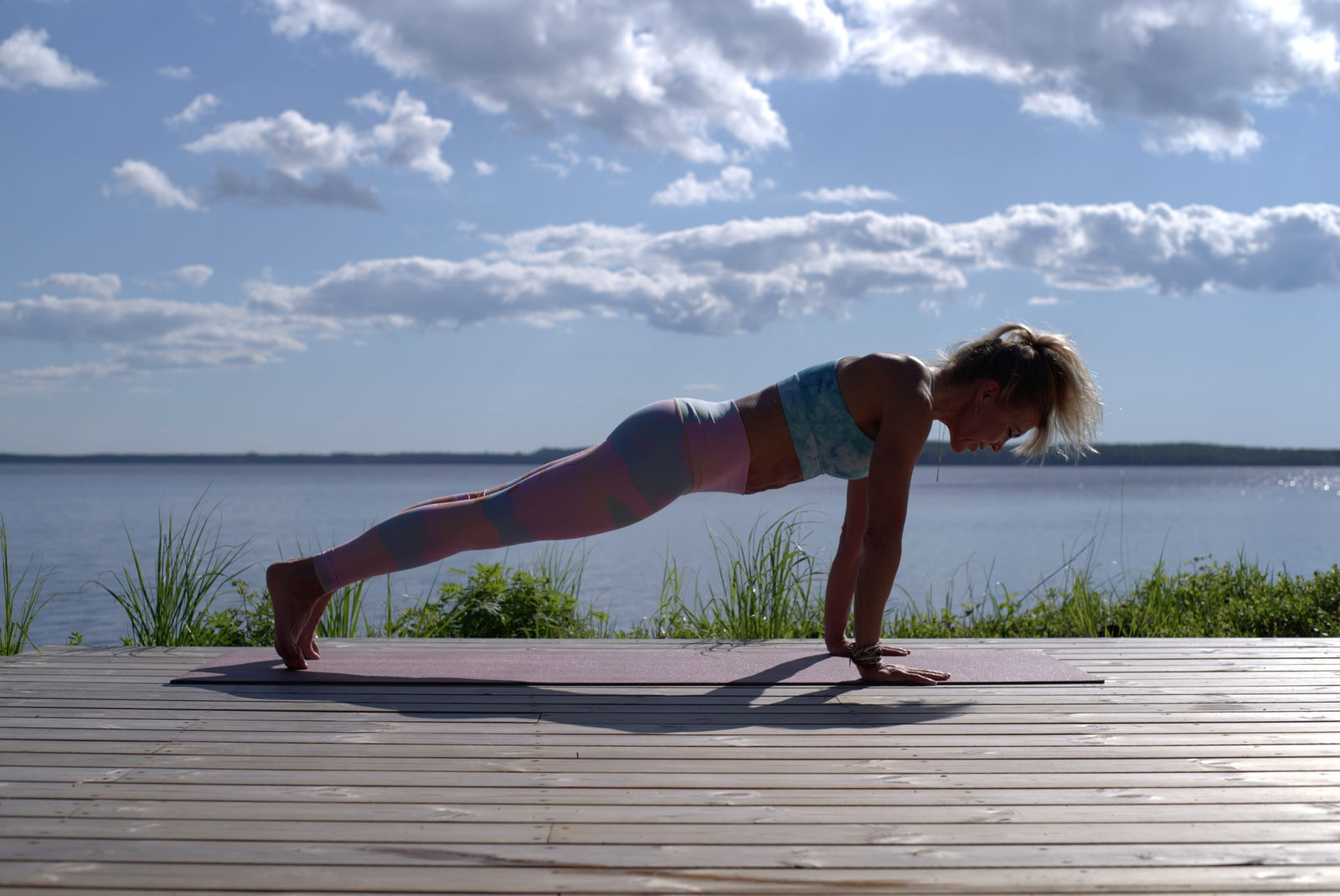Photo by Rafal Jedrzejek on Unsplash
Find yourself having a hard time catching that elusive shut-eye? Then you’re one in four Americans suffering from acute insomnia every year. This is according to a study from the Perelman School of Medicine at the University of Pennsylvania, which covers data on how rampant acute insomnia is in the country. [1]
Don’t fret. There are a few good tricks to getting enough sleep – some of which we’ve tackled in previous articles – like the following:
- getting rid of blue light before bedtime
- exercising and other workout that can help you sleep
- doing some meditation and other relaxation techniques
- listening to music that can put you to sleep
- taking Valerian supplement, passionflower, lemon balm and/or melatonin as a sleeping aid
- keeping a healthy diet to avoid insomnia
It’s key to prioritize sleep and make sure that you’re clocking enough hours. Sleeplessness has adverse effects that could impact your everyday life and long-term wellness (more of this later), so it’s key to understand the important role sleep plays in your general health.
How many hours of sleep do you need?
It appears to be common knowledge but for many of us, we’ve come to know that 8 hours is the magic number for getting good quality sleep overnight.
But depending on lifestyle, age and even occupation, eight may not necessarily be *that* easy to achieve.
So some people use the general rule of thumb – if you wake up tired or feeling fatigued throughout the day, then you certainly did not get enough shut-eye last night.
According to a report by the National Sleep Foundation, the ideal number of hours of sleep by age is as follows: [2]
- Over 65 years old: 7 to 8 hours
- 26 to 64 years old: 7 to 9 hours
- 18 to 25 years old: 7 to 9 hours
- 14 to 17 years old: 8 to 10 hours
- 6 to 13 years old: 9 to 11 hours
- 3 to 5 years old: 10 to 13 hours
- 1 to 2 years old: 11 to 14 hours
- 4 to 11 months old: 12 to 15 hours
- 0 to 3 months old: 14 to 17 hours
What happens if you don’t get enough sleep?
The most noticeable effects of sleeplessness is grumpiness the next day. Just go back to the days when you were trying to study for a big exam or preparing for an important work presentation, and spent the whole night doing so, only to feel a lack in focus the next day. Apart from stress and fatigue, a poor night’s sleep can cause a lack in concentration, brain fog, short temper, and even bad mood.
But not getting enough snooze frequently or in a more consistent basis can also cause chronic and serious medical conditions. It increases the risk of heart diseases, obesity, and diabetes, not to mention a shortened life expectancy. [3]
Here are some of the things that can happen when one constantly does NOT get enough sleep: [2, 3, 4]
Chronic illnesses
According to studies, people who clock in five hours or less a night frequently also increase their risk for diabetes. Sleep deprivation may lead to a higher likelihood of type 2 diabetes when the body changes the way it breaks down glucose used for energy.
In the same vein, lack of sleep can also increase the risk of cardiovascular diseases. It increases the heart rate, blood pressure, and some chemicals in the body that are linked to inflammation and thus puts extra stress on the heart.
Weaker cognitive functions
Trying to memorize those terms for an exam or your spiel for work presentation overnight? Unfortunately this may be counter-productive as losing sleep can affect your ability to memorize, remember, think and process information.
Weak immune system
Notice yourself easily catching colds, flu and other illnesses so easily? Then check if you’re sleeping well enough. And if the other is no, then you may be having a weak immune system due to lack of sleep.
Gaining weight
Sleeping less means more pounds. According to studies, people who constantly clocks in less than 7 hours of snooze every night tend to put on more weight. In fact, sleeplessness can increase the risk of obesity.
Lower libido
Both men and women could suffer from lower libido when they don’t sleep enough. Furthermore, men who suffer from sleep apnoea, or a sleep disorder that makes breathing difficult and thus interrupts sleep, have been observed to have lower testosterone levels. This leads them to lose interest in sex.
Decreased fertility
Being constantly deprived of sleep can cause trouble in conceiving a baby. Apart from lower libido, sleeplessness in both men and women can make it difficult for couples planning to build a family to reduced secretion of reproductive hormones.
Lack of alertness
Missing even just an hour and a half of sleep can already impact your alertness and how you feel.
Sleepiness throughout the day
Not having enough sleep can make you yawn throughout the day, feeling very sleepy, tired and uninspired.
Conflicts and relationship tension
Bad mood and short temper can cause conflicts and may impact your relationships and interactions with people around you.
Higher likelihood for accidents
Drowsiness and fatigue kills. The National Highway Traffic Safety Administration reports that inattentive driving causes thousands of car crashes, injuries and driving-related fatalities each year.
Mental health
Sleep deprivation doesn’t just mean moody, grumpy, irritability and short temper. If it happens often, it may also lead to long-term mood disorders such as anxiety, clinical depression and general loss of motivation. On the flip side, patients suffering from clinical depression have also been found to have irregular sleeping patterns and clock in five hours or less.
Conclusion
Sleep cycles and mood regulation are driven by a hormone called melatonin. With lower levels of melatonin come insomnia and a general lack of wellbeing. To avoid the above effects of sleep deprivation, make sure that you take some important steps that lead to more hours of sleep such that your brain and body recuperates enough for the next day. Apart from the tips, hacks and suggestions at the start of this article, consider supplementing these things with a sleeping aid that could help you get a good night’s sleep.
VALI Sleep Well is a herbal sleep aid made with natural ingredients safe for everyday use. Unlike other sleeping pills & OTC medicine, Sleep Well doesn’t make you dependent for sleeping. It uses ingredients backed by nature and proven by science to help you maintain a balanced sleep cycle schedule without damaging side effects. It also makes biohacking sleep easier with deodorized Valerian to benefit from this amazing herb without its potent smell!
Sources
[1] https://www.sciencedaily.com/releases/2018/06/180605154114.htm
[2] https://health.clevelandclinic.org/happens-body-dont-get-enough-sleep/
[3] https://www.nhs.uk/live-well/sleep-and-tiredness/why-lack-of-sleep-is-bad-for-your-health/
[4] https://www.sleephealthsolutionsohio.com/blog/10-effects-of-long-term-sleep-deprivation/








